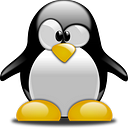Does what someone says perform the function of a joke? Is there some sort of linguistic trickery or subversion of audience expectation? If so... this is the job of a comic. Whether you are offended by the joke or you don't laugh, or you don't enjoy the humour - that's on you. You don't have to find a joke funny for it to be considered a joke. If you think it's offensive, the only real response a comedian (and the rest of us) should give is 'so what?'
We cannot start mandating what comedians can and can't say, language is too important for that. We should be wary of anyone who tries to decide who can and cannot speak about any issue. We should pay attention to the words people use and not focus on how those words make us feel. We should protect jokes and humour at all costs, because only fools can speak the truth to kings.
And that Shakespeare attribution is particularly relevant in a world where everyone has decided they have the divine moral right of Kings. Social media has made everyone feel their subjective reality is more important than everyone else's, buoyed up by the artificial comfort of likeminded individuals. It's a dangerous road to travel to start telling people what can and can't be said....
Another article that's bang on and incredibly prescient. Impressive stuff as always Mr QJ.
